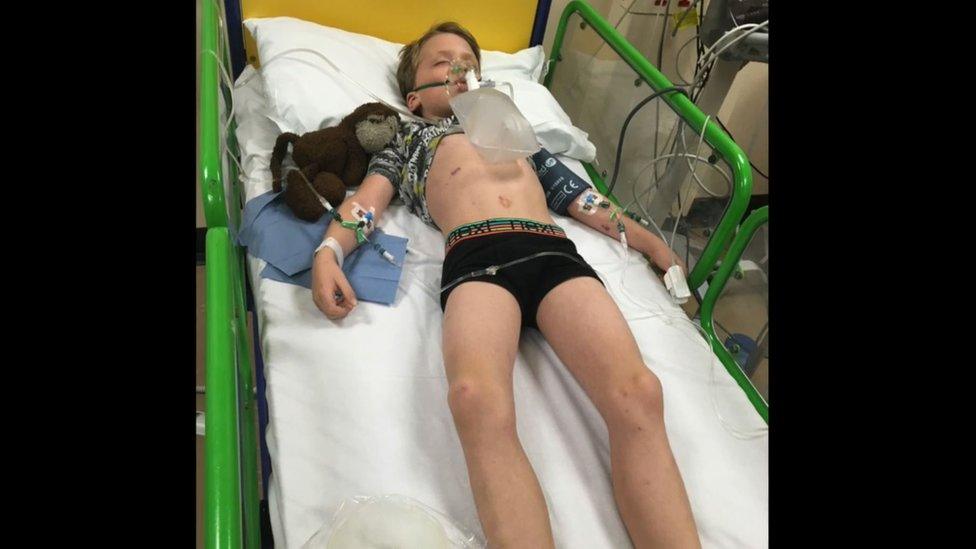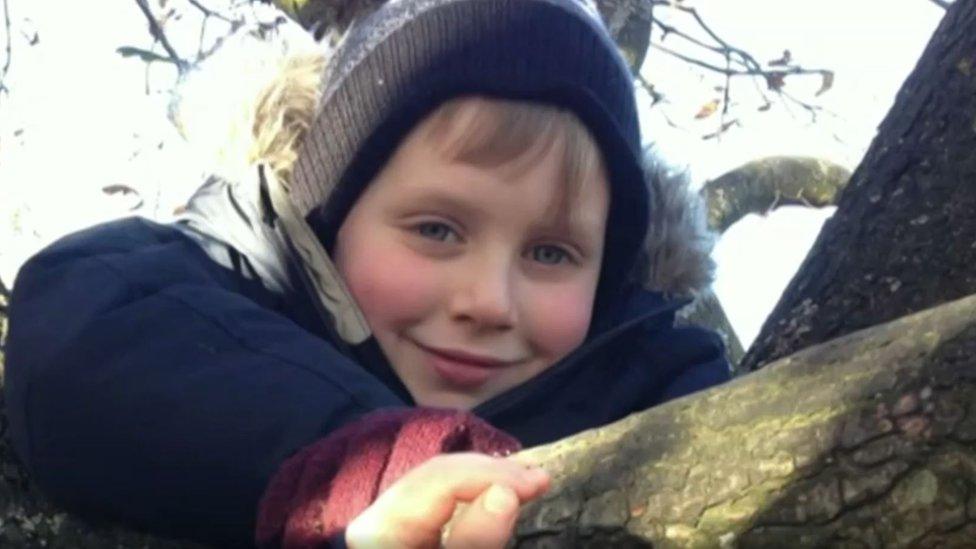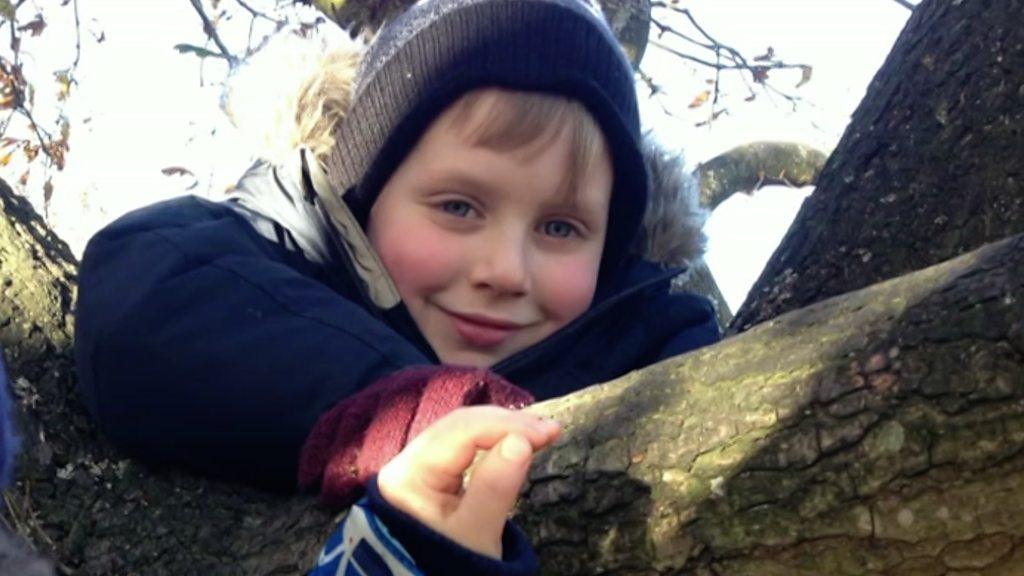Oliver Hall inquest: 'Gross failure' led to boy's death
- Published

Oliver Hall died less than 24 hours after contracting meningitis B
A six-year-old boy died of meningitis because of the "gross failure" to provide basic medical treatment, a jury has concluded.
Oliver Hall, of Halesworth, Suffolk, died the day after his symptoms began in October 2017, his inquest was told.
He had been examined by two paramedics and two doctors who failed to diagnose the infection early enough.
Suffolk coroner Nigel Parsley has called for urgent improvements to prevent further deaths.
The inquest previously heard faster diagnosis could have saved Oliver.
The six-year-old had been assessed by paramedics and GPs the day before he died
The jury concluded there were failures in communication, a failure to carry out a full examination and a failure to carry out sufficient observations.
The coroner said vital information between the NHS 111 and ambulance service had not been shared properly, making it difficult for paramedics and GPs to make an appropriate clinical assessment.
He also highlighted concerns about the ambulance service being unable to provide an ambulance reliably when one is requested by a doctor.
Mr Parsley will write a Prevention of Future Deaths report which the named authorities must respond to within 56 days, outlining the action they will take.
Oliver's cause of death was recorded as natural causes contributed to by neglect, due to the gross failure to provide basic medical treatment.

Ollie died less than 24 hours after contracting meningitis B
Family's fears
Oliver's mother Georgie called the NHS 111 service when her son complained of a headache, sore jaw and fever on 23 October 2017.
Two paramedics took him to his doctors' surgery where he was examined by a trainee GP and his superior, who diagnosed a viral infection and sent him home.
When Oliver's condition grew worse, the family returned to the surgery and doctors requested an ambulance to take him to hospital.
They were told by the East of England Ambulance Service one was not available, so his parents drove Oliver to hospital, where he died the next morning.
They had earlier told the week-long inquest that they felt they had been made to feel like "over-sensitive parents, who didn't know what we were talking about".
- Published6 June 2019

- Published5 June 2019

- Published3 June 2019

- Published8 December 2017
